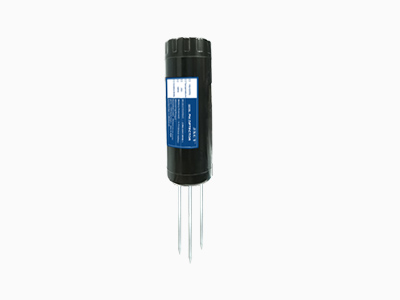In the realm of precision agriculture, monitoring and managing soil conductivity is of utmost importance. Soil conductivity, also known as electrical conductivity (EC), is a measure of the ability of the soil to conduct an electrical current. It provides valuable information about soil fertility, salinity levels, and nutrient availability, among other factors. To accurately monitor soil conductivity in real-time, industrial IoT wireless conductivity EC sensors have emerged as a reliable solution. In this article, we will discuss the features, benefits, and considerations of using industrial IoT wireless conductivity EC sensors for soil management.
Features of Industrial IoT Wireless Conductivity EC Sensors
Industrial IoT wireless conductivity EC sensors are equipped with advanced features that make them ideal for soil management applications. These features include:

a) Wireless Connectivity:
These sensors are designed to transmit data wirelessly, allowing for remote monitoring and control. The wireless connectivity enables real-time data acquisition and analysis, thereby facilitating timely decision-making.
b) Robust Construction:
Industrial IoT wireless conductivity EC sensors are built to withstand harsh environmental conditions. They are often designed to be waterproof, dustproof, and resistant to temperature fluctuations. This ensures their reliability and durability, even in challenging outdoor settings.
c) Low Power Consumption:
These sensors are typically designed to operate on low power, enabling long battery life. This is particularly useful in agricultural settings where sensors may be deployed in remote locations without a direct power source.
d) Scalability:
Industrial IoT wireless conductivity EC sensors are scalable, allowing for the integration of multiple sensors in a network. This enables users to monitor conductivity levels across different areas of their agricultural fields or even in multiple fields simultaneously.
Benefits of Industrial IoT Wireless Conductivity EC Sensors for Soil Management
a) Real-Time Monitoring: With wireless connectivity, these sensors provide real-time data on soil conductivity. This allows farmers and agronomists to make immediate and informed decisions regarding irrigation, fertilization, and other soil management practices.
b) Precision Agriculture:
By accurately measuring soil conductivity, these sensors enable precision agriculture practices. Farmers can identify areas with high or low conductivity and adjust their irrigation and fertilization strategies accordingly, optimizing resource usage and maximizing crop yield.
c) Automated Alerts:
ndustrial IoT wireless conductivity EC sensors can be programmed to send automated alerts or notifications when conductivity levels deviate from the desired range. This allows immediate action to be taken to address any issues before they result in crop damage or yield loss.
d) Data Analytics:
The data collected from these sensors can be analyzed to gain insights and trends over time. This data-driven approach provides valuable information for long-term soil management planning and decision-making.
Considerations for Using Industrial IoT Wireless Conductivity EC Sensors
While industrial IoT wireless conductivity EC sensors offer numerous advantages, it is important to consider certain factors before deploying them:
a) Sensor Calibration:
It is crucial to regularly calibrate the sensors to ensure accurate and reliable measurements. Calibration should be done based on soil conditions and in accordance with manufacturer guidelines.
b) Sensor Placement:
The placement of sensors in the soil is critical for obtaining accurate readings. Sensors should be positioned at an appropriate depth and spacing to capture representative soil conductivity levels.
c) Sensor Interference:
Wireless connectivity can be affected by environmental factors such as obstacles, distance, and electromagnetic interference. It is important to consider these factors when deploying the sensors to ensure a reliable and robust wireless connection.
d) Data Security:

Industrial IoT wireless conductivity EC sensors transmit sensitive data. It is crucial to implement robust security measures to protect the data from unauthorized access or cyber threats.
Conclusion
Industrial IoT wireless conductivity EC sensors have revolutionized soil management in precision agriculture. With features such as wireless connectivity, robust construction, low power consumption, and scalability, these sensors offer real-time monitoring, precision agriculture, automated alerts, and valuable data analytics. However, careful consideration should be given to calibration, placement, interference, and data security.